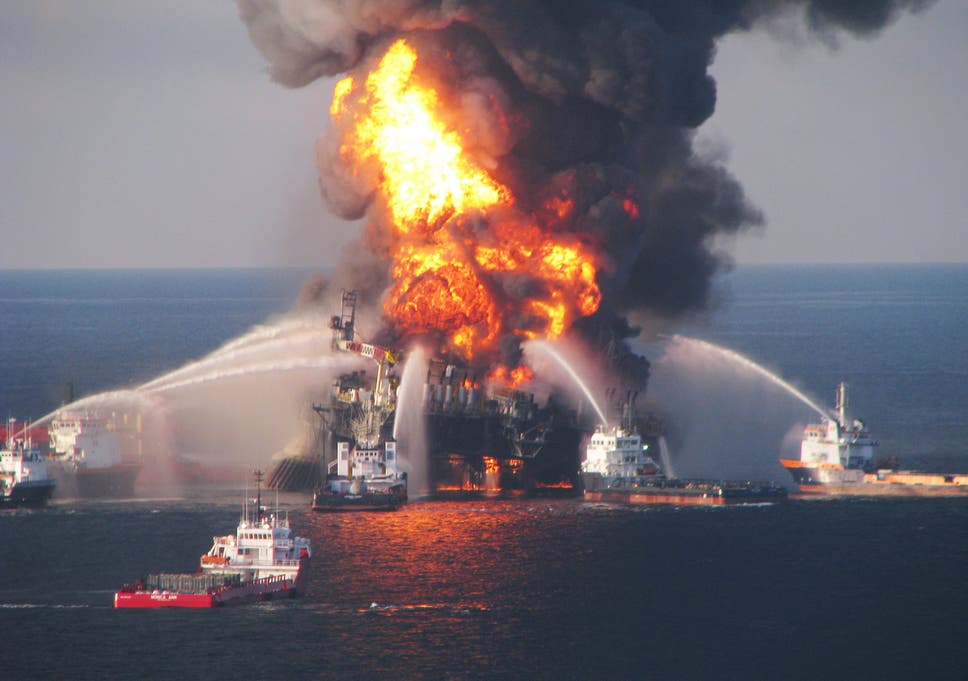
A decade after the explosion on BP’s Deepwater Horizon rig caused 4.9m barrels of oil to spill into the Gulf of Mexico, marine scientists have found that fish in the region are still affected from the disaster.
On 20 April, 2010, a methane explosion on the rig caused it to catch fire and sink, around 40 miles from the Louisiana coastline. Eleven workers died and 17 others were injured in what became one of the largest environmental disasters in US history.
The impact on marine life was devastating. The toxic spill effected thousands of species from plankton to dolphins causing death and a range of consequences like impaired reproduction, reduced growth, lesions and disease.
Scientists have spent a decade since the spill researching its impact on marine life in the Gulf.
Writing in The Conservation, Dr Steven Murawski, marine ecologist at the University of South Florida, and Sherry Gilbert, Assistant Director of the university’s C-IMAGE Consortium shared their findings on how the oil disaster affected the Gulf of Mexico’s ecosystems.
No baseline data on oil contamination existed for the Gulf of Mexico prior to the Deepwater Horizon disaster and the researchers noted that oil was already in the Gulf from past spills and natural seeps.
NOAA states that since the 1960s, there have been at least 44 oil spills, each over 10,000 barrels (420,000 gallons), affecting U.S. waters.
As much as half of the oil that enters the coastal environment comes from natural seeps of oil and natural gas, according to the Woods Hole Oceanographic Institution.
The University of South Florida team created a baseline of oil contamination in the Gulf by spending 250 days at sea, sampling 15,000 fishes and taking 2,500 sediment cores.
Studies were conducted from 2011 until 2018 to learn what impacts the oil spill had on the health of marine species and how oil affected the ocean floor.
Crucially, all fish suffered from the effects of the pollution.
They wrote: “Importantly, no fish yet sampled anywhere in the Gulf has been free of hydrocarbons – a telling sign of chronic and ongoing pollution in the Gulf. It is not known if similar findings would result from ecosystem-wide studies elsewhere because such surveys are rare.”
Red snapper, important for commercial fishing, suffered skin lesions after the Deepwater Horizon disaster but these had declined by 2012.
In other species, like golden tilefish, grouper and hake, there is also "evidence of ongoing and increasing exposures to hydrocarbons over time” causing a decline in health.
Deepwater fish, which are a food source for larger marine life, were also affected.
Significant amounts of crude oil from the spill made its way to the sea floor, carried there by “marine snow” - a shower of organic material including plankton and soil particles which falls from the surface to the deep ocean.
In the aftermath of Deepwater Horizon, oil slicks on the ocean surface were set fire to in order to prevent it choking the coastline.
However, according to the researchers, burning crude oil meant thousands of toxic carbon compounds were created and trapped in the marine snow.
“Post-spill studies found that levels of oil compounds on the seafloor in the area affected by the spill were two to three times higher than background levels elsewhere in the Gulf,” according to the report.
Numbers of foraminifera, minute single-celled organisms which are a food source for larger marine life, dropped up to 90 per cent in the months following Deepwater Horizon and the species diversity declined 30-40 per cent.
Oxygen levels also decreased making survival more difficult for organisms on the sea bed. The researchers estimate that it could take up to a century for the deep ocean ecosystem to recover.
As they continue to assess the impact of the Deepwater Horizon spill, the scientists called for more transparency from the oil industry, including on routine equipment failures and discharges of drilling muds, to have a better understanding of what’s happening in the ocean in real time.







